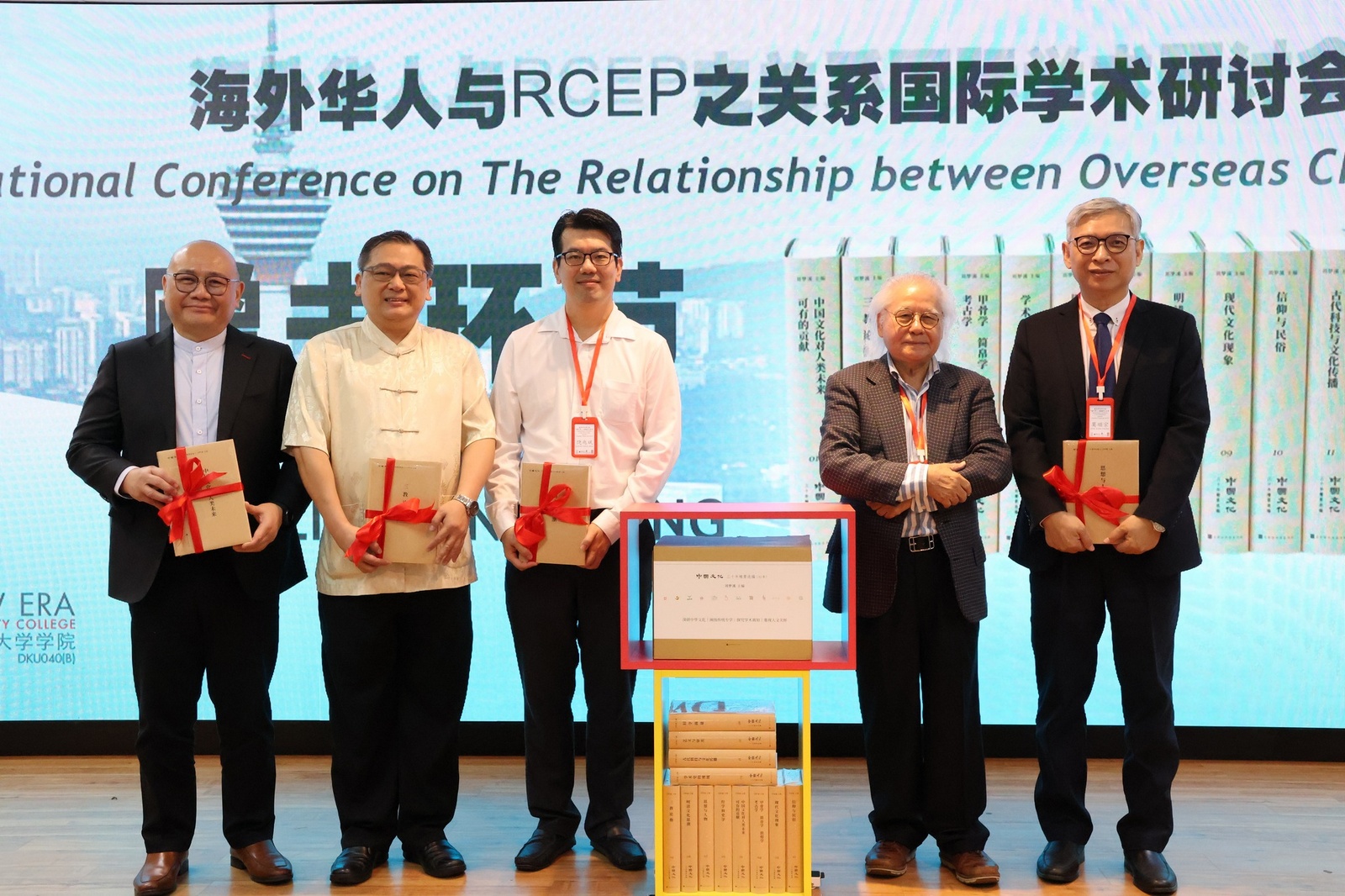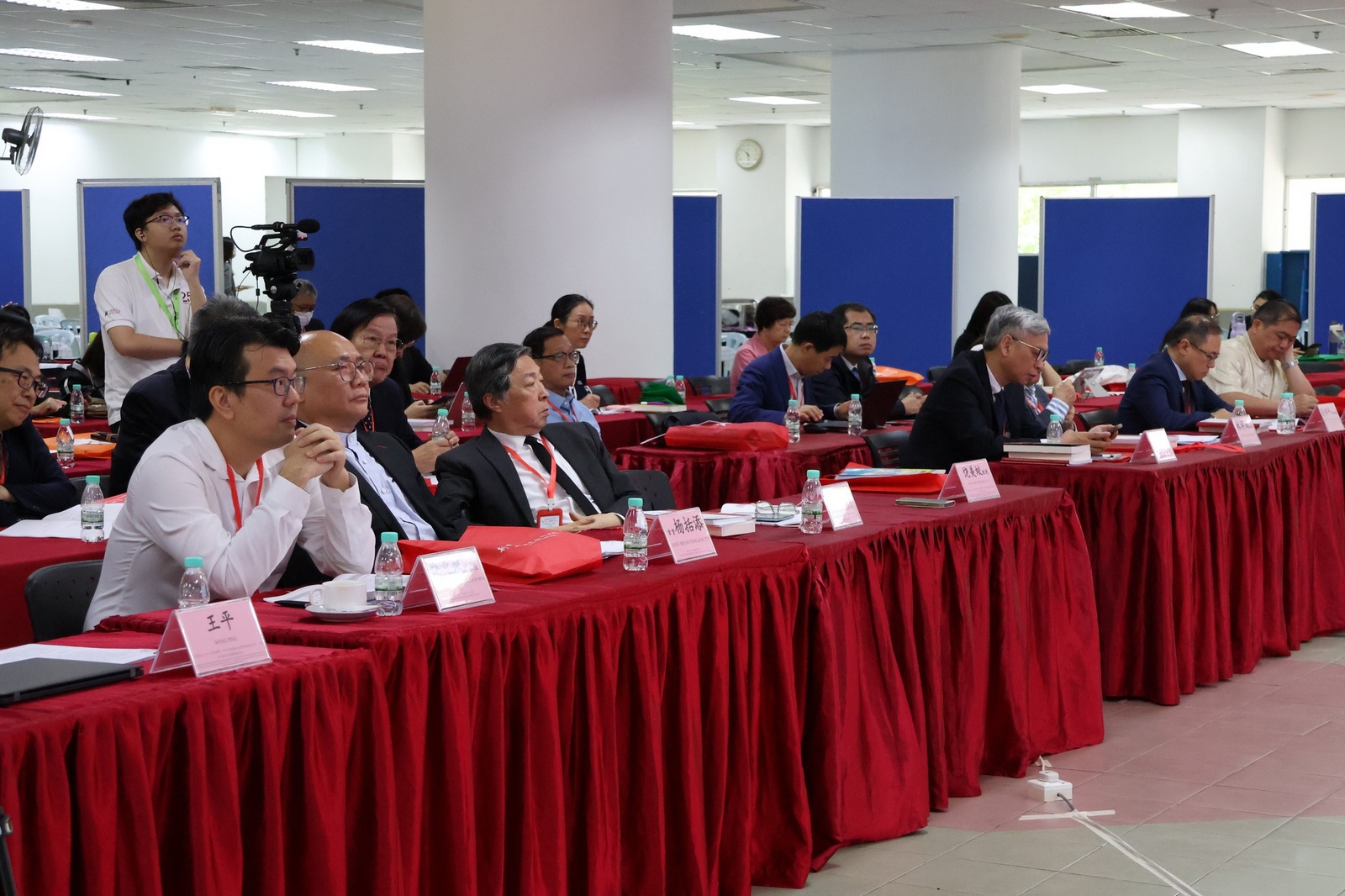International Conference on “Overseas Chinese and RCEP Relations” Concludes Successfully
Kajang, 17th – The two-day International Conference on Overseas Chinese and RCEP Relations, co-hosted by New Era University College and the Asia Pacific 21 Society (Hong Kong), concluded successfully at New Era University College today. This prestigious academic event was co-organized by the China Review Think Tank Foundation and the Nanyang University Alumni Academic Association. It attracted nearly 200 representatives from academia, industry, and related sectors both domestically and internationally, including alumni from various cohorts of Nanyang University and faculty and students from New Era University College. The conference aimed to explore the roles and contributions of Overseas Chinese under the framework of the Regional Comprehensive Economic Partnership (RCEP).
Promoting Civilizational Dialogue and Regional Cooperation
Professor Dr. Mok Soon Chong, Vice-Chancellor of New Era University College, emphasized the institution’s longstanding commitment to advancing Southeast Asian studies and its efforts to establish a Southeast Asian Studies program with government support. He highlighted that the program aims to promote comprehensive regional collaboration and academic exchange, with a particular focus on deepening research into topics related to China and Southeast Asia.
Mr. Ho Leong Leong, Vice President of the Hong Kong Society of Asia and Pacific Twenty-One limited, called on educators and media professionals to analyze current affairs with professionalism and independence to foster rational dialogue.
Professor Lin Xiang Xiong, a visiting professor at Peking University, shared insights from his experience in international forums and cultural events. He emphasized that “civilizational dialogue” is a cornerstone for achieving global coexistence and peace, urging the arts and academia to take up the responsibility of facilitating such dialogue to create more possibilities for global cooperation and development.
The speeches by the three keynote speakers provided a profound intellectual foundation for the conference, showcasing the integration of academic thought and practical application. Their insights enriched the subsequent discussions and set a visionary tone for the event.
Keynote Speeches: Reflecting on History and Connecting to the Future
During the keynote session, Professor Dr. Nyaw Mee-Kau, former Chair Professor of the Department of Management at The Chinese University of Hong Kong, delivered a presentation titled Analyzing the Decline of Nanyang University and the Contributions of Overseas Chinese to Southeast Asian Economies. He revisited the history of Nanyang University from its founding to its dissolution, highlighting the resilient spirit of Chinese culture and its enduring impact on Southeast Asian economic development.
Professor Dr. Mok Soon Chong presented on the topic Scattered or Unified? – Overseas Chinese Economic, Cultural, and Educational Networks and RCEP, underscoring the dynamic role of Southeast Asian Chinese as intermediaries in regional economies. He stressed their potential to serve as a vital bridge between China and Malaysia through deeper collaboration. He further noted that “people-to-people connectivity” is critical to the sustained deepening of RCEP, emphasizing the importance of cross-cultural understanding and trust in achieving meaningful regional cooperation.
Several scholars shared forward-thinking perspectives during the discussion sessions. Representing the Nanyang University Alumni Academic Association, Mr. Chou Yik Lin expressed gratitude to the organizers and looked forward to further collaborations with counterparts from Hong Kong, Taiwan, and New Era University College. Dr. Wang Xiao Ping praised the Asia Pacific 21 Society’s role in fostering academic exchanges, noting that the conference broadened his academic horizons, expanded his professional network, and inspired innovative thinking.
Professor Chiang Po Wei analyzed the pivotal role of Overseas Chinese in establishing regional economic and business networks through the lens of cultural capital. He highlighted their exceptional cross-cultural communication skills and adaptability. Quoting the Confucian principle of “harmony in diversity” from The Analects, he pointed out its relevance to international geopolitics, regional economic integration, and cultural development. Dr. Wang Ping commended the conference’s forward-looking approach, noting that the scholars’ insights revealed potential opportunities beyond current developments. Mr. Ho Leong Leong concluded by expressing gratitude to Mr. Lim Soon Tiong for his longstanding efforts in strengthening ties between Malaysia and Hong Kong.
This conference not only provided a platform for in-depth academic exchange but also highlighted the unique position of Overseas Chinese as drivers of regional economic growth and cultural connectivity under the RCEP framework. It offered fresh perspectives and practical pathways to redefine the role of the Overseas Chinese community within the RCEP context.







.jpg)
.jpg)

